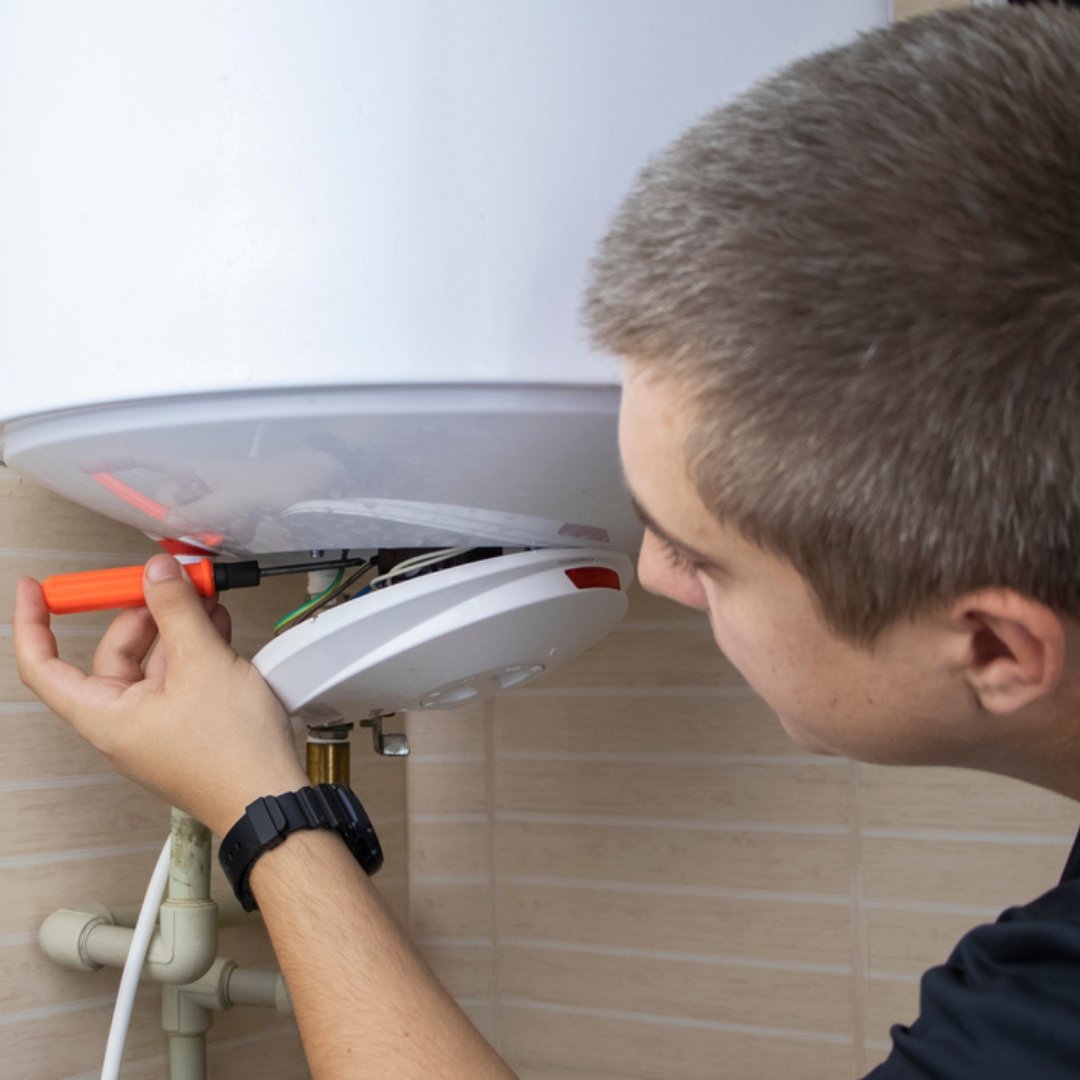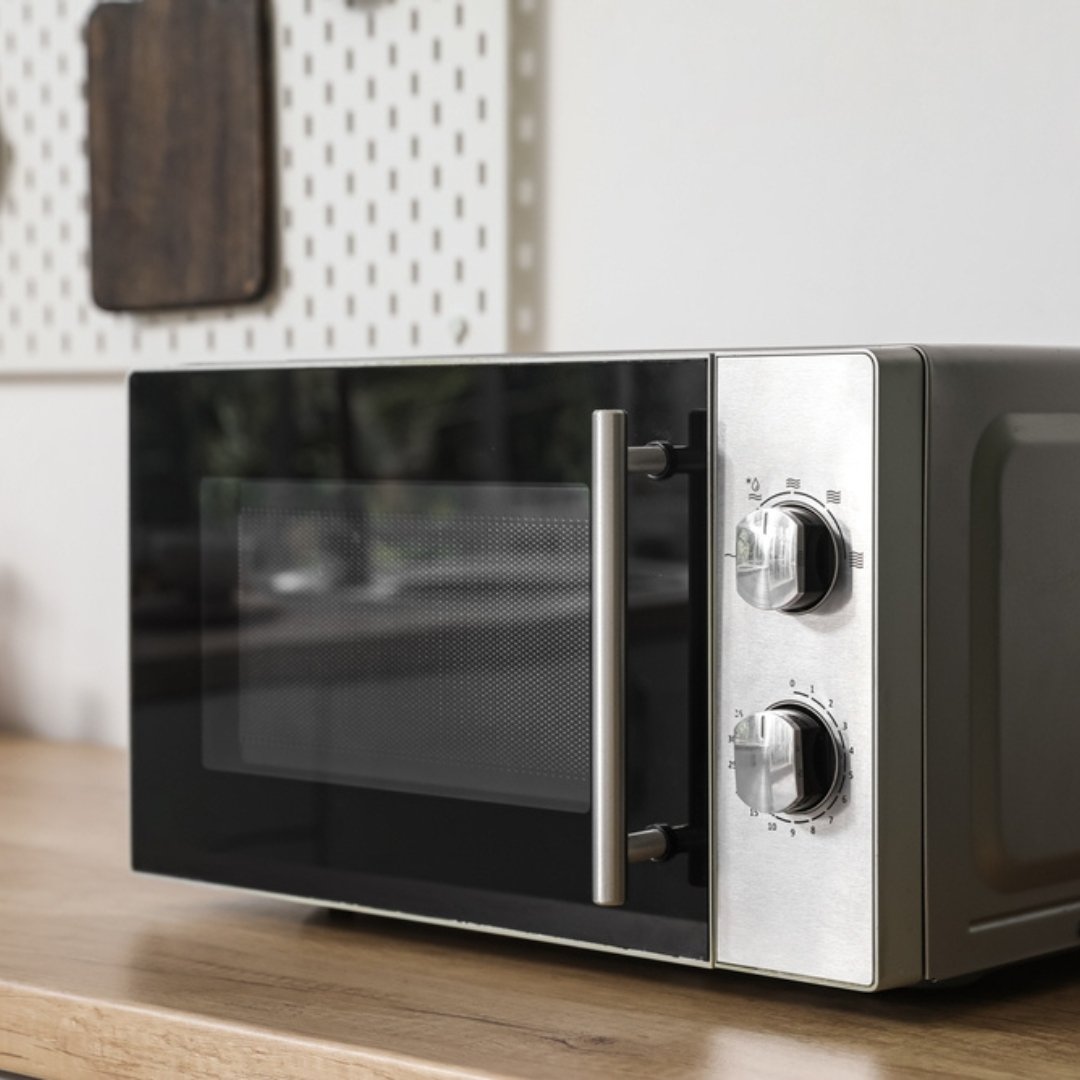Seasonal RCD Testing Tips (Monsoon/Winter Safety)
Electricity is a part of our daily life, but it can become dangerous during extreme weather conditions, especially during monsoon and winter. During these seasons, increased humidity, water accumulation, and fluctuating temperatures make electrical systems more vulnerable to faults. One of the most effective ways to protect your home and family is by using a Residual Current Device (RCD).
An RCD is designed to detect leakage currents caused by faulty appliances or water exposure and disconnect the power supply within milliseconds, preventing serious electric shocks and reducing the risk of fire. However, the device will only protect you if it is regularly tested and properly maintained. To Know More Click Here
Here’s a detailed guide on seasonal RCD testing and safety to keep your home protected:
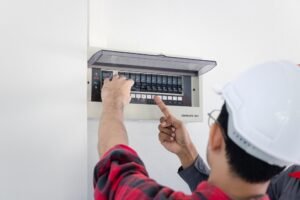
1. Test Your RCD Regularly
RCDs should ideally be tested every three months, but during the monsoon and winter, testing once a month is highly recommended. Most RCDs feature a “T” button for testing. Press this button, and the device should trip immediately.
Why it’s important:
- Moisture can reduce the efficiency of electrical insulation, making leakage currents more likely.
- Regular testing ensures the RCD is functional and ready to act in case of an electrical fault.
Pro Tip: Keep a simple log of RCD tests. Note down the date, results, and any irregularities. This helps in spotting recurring issues before they become serious.
2. Inspect for Moisture and Water Exposure
Monsoon rains often cause water to seep into outdoor outlets, switchboards, and electrical panels. Water is a good conductor of electricity, and any dampness near electrical equipment increases the risk of electric shock.
Safety measures:
- Check all switchboards and sockets for dampness.
- Ensure outdoor electrical points are properly covered with waterproof enclosures.
- Avoid operating electrical appliances with wet hands or in damp areas.
Winter concern: Even in winter, condensation can accumulate in poorly ventilated electrical panels. Ensure these areas are dry to maintain RCD effectiveness. To Know More Click Here

3. Avoid Overloading Circuits
Winter months often see increased use of heaters, water heaters, and other high-power appliances. Overloading circuits not only trips the RCD frequently but can also reduce its lifespan.
Tips to prevent overloading:
- Distribute high-power appliances across multiple circuits.
- Use energy-efficient appliances to reduce overall load.
- Avoid using extension cords for high-wattage devices during these seasons.
4. Keep Electrical Panels Clean and Dry
Electrical panels can accumulate dust, dirt, and even small insects over time. Moisture, combined with dirt, can reduce the efficiency of your RCD and increase the risk of faults.
Maintenance tips:
- Wipe down switchboards with a dry cloth regularly.
- Ensure the area around electrical panels is well-ventilated.
- Consider installing protective covers for outdoor panels to prevent rain or water splash. To Know More Click Here
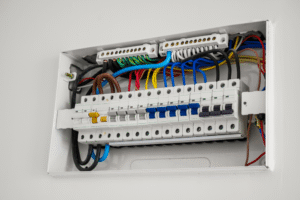
5. Engage a Qualified Electrician
If your RCD fails the test, trips frequently without a clear reason, or shows signs of wear and tear, it is crucial to call a licensed electrician. Seasonal factors like rust, moisture, or dust accumulation can compromise RCD performance.
Why professional inspection matters:
- Detect hidden wiring faults.
- Replace worn-out components safely.
- Ensure compliance with safety standards, protecting your home and family.
6. Educate Household Members
Safety is most effective when everyone in the household knows how to respond. Make sure family members know:
- How to test the RCD using the test button.
- How to switch off the main power supply in case of an emergency.
- To never touch appliances with wet hands.
A little awareness can prevent accidents and ensure quick action during electrical faults.
7. Extra Seasonal Precautions
- During Monsoon: Keep a bucket or cloth handy to dry puddles near outdoor appliances. Avoid using electrical devices in wet areas.
- During Winter: Be aware of condensation around heaters, geysers, and pipes. Check for signs of rust or dampness in switchboards.
- Backup Power: If you use generators or UPS devices, ensure their wiring is separate and RCD-protected. To Know More Click Here
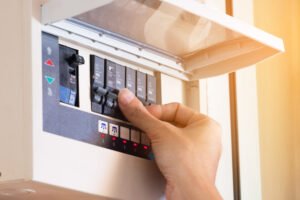
Conclusion
Seasonal RCD testing is a simple yet vital step in maintaining electrical safety. By regularly testing your RCD, inspecting for moisture, avoiding overloads, and consulting professionals when needed, you can protect your home and family from potentially fatal electric shocks.
Remember: An RCD can save lives, but only if it works when you need it. Stay proactive and make safety a habit every monsoon and winter season.
“Electricity is a friend when controlled, but a danger when ignored—regular RCD testing keeps it safe.”
SafeTag – Your Safety Partner in New Zealand
Ensure workplace safety and compliance with SafeTag’s professional testing services. We offer certified solutions for Electrical Testing & Tagging, RCD Testing, Microwave Leakage Testing, and Portable Appliance Testing (PAT). Trust our experts for hassle-free, on-site service tailored to your business needs.

